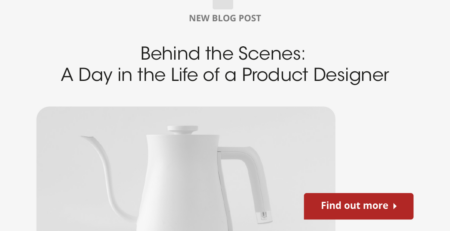Unlock Your Dream Job: Revealing the Top 10 Interview Questions You MUST Know!
Embarking on the journey to secure your dream job can be both exhilarating and daunting. The interview process, often seen as the gateway to your career aspirations, plays a crucial role in determining your success. Understanding the dynamics of an interview and preparing adequately can significantly enhance your chances of making a positive impression. This comprehensive guide is designed to equip you with the knowledge of the top 10 interview questions that are pivotal in the hiring process.
Interviews are more than just a formality; they are a platform for potential employers to gauge your suitability for the role beyond what is written on your resume. Each question posed during an interview serves a specific purpose, revealing various aspects of your qualifications, personality, and work ethic. Therefore, mastering these questions can give you a distinct advantage.
Why do interviewers focus on these particular questions? It’s because they are crafted to cut through the facade and uncover the real candidate. They challenge you to demonstrate your skills, adaptability, and alignment with the company’s culture and values. This guide not only lists these essential questions but also delves into the rationale behind each one and offers strategic advice on how to articulate your responses effectively.
The importance of preparation cannot be overstated. It involves more than rehearsing answers; it’s about understanding the context of each question and aligning your responses with the strategic goals of the organization you wish to join. This alignment shows interviewers that you are not only qualified but also genuinely interested in contributing to their success.
This guide will also touch on the nuances of non-verbal communication, timing, and the art of following up post-interview. Each of these elements plays a crucial role in the overall impression you leave on your potential employers. Remember, the goal is not just to answer questions but to engage in a meaningful conversation that positions you as the ideal candidate.
As you navigate through this guide, you will gain insights into crafting compelling stories about your past experiences that resonate with interviewers. Storytelling is a powerful tool in interviews because it allows you to connect emotionally with the interviewer, making your candidacy memorable.
Moreover, this guide will provide practical tips on handling nerves, maintaining composure, and thinking on your feet during unexpected or tricky interview scenarios. These skills are invaluable, as they can make the difference between a good interview and a great one.
To further aid your preparation, this guide includes links to additional resources that offer deeper dives into specific topics, such as salary negotiations, remote work dynamics, and performance reviews. These resources are essential for understanding the broader context of your career path and the evolving landscape of the workforce.
By the end of this guide, you will be better prepared to face any interview with confidence, armed with knowledge and strategies that will showcase your best self to potential employers. The journey to your dream job is a challenging one, but with the right preparation, you can navigate it successfully.
Let’s dive into the top 10 interview questions that you must be prepared for, ensuring that no question takes you by surprise and that you can articulate your responses with clarity and confidence.
Top 10 Interview Questions
- What can you tell me about yourself?
- Why do you want to work here?
- What are your greatest strengths?
- What do you consider to be your weaknesses?
- Where do you see yourself in five years?
- Can you describe a challenge or conflict you’ve faced at work, and how you dealt with it?
- Why are you leaving your current job?
- What are your salary expectations?
- How do you handle stress and pressure?
- Do you have any questions for us?
Most Asked Questions About Interview Preparation
- How can I make a lasting impression during an interview?
- What are some effective strategies for answering behavioral interview questions?
- How should I prepare for unexpected questions or topics?
- What are the best practices for negotiating a salary?
- How can I showcase my skills and experiences without sounding boastful?
- What are the key elements of a successful follow-up email after an interview?
- How can I use my body language to convey confidence and professionalism?
Deep Dive into the First Interview Question: “What can you tell me about yourself?”
This seemingly simple question is often used as an icebreaker but holds immense importance as it sets the tone for the rest of the interview. It’s your chance to succinctly present your professional narrative, highlighting the experiences and skills that make you the perfect fit for the position. Crafting a compelling response requires a balance of personal insights and professional achievements.
Start by summarizing your current position and responsibilities, emphasizing any accomplishments or skills that are relevant to the job you’re applying for. This shows that you’re not just recounting your resume but are making a direct connection between your experiences and the job requirements.
Next, delve into a brief overview of your career journey, pointing out any transitions and what drove them. This can help interviewers understand your career trajectory and how it aligns with your current job aspirations. It’s also an opportunity to demonstrate growth and the ability to adapt to new roles and environments.
Include one or two personal anecdotes that relate to your professional life. This could be a project you are particularly proud of or a challenge you overcame. These stories add depth to your professional image and make your response more engaging.
Keep your answer concise and focused. A well-structured response that lasts about 1-2 minutes is ideal. This shows that you can communicate effectively and value the interviewer’s time.
Practice your answer, but make sure it sounds natural and not rehearsed. You want to come across as genuine and confident, not like you’re reading from a script.
Consider the company’s culture and values as you prepare your answer. Tailoring your response to reflect that you’ve done your homework about the company and that your professional values align with theirs can set you apart from other candidates.
Use this question to set up topics you want to discuss further in the interview. Mention skills or experiences you want the interviewer to ask more about. This can help steer the interview in a direction that plays to your strengths.
Avoid diving too deep into personal details that are not relevant to the job. Keep the focus on professional aspects and only share personal details if they enhance your professional narrative.
Lastly, end your response with a statement that reflects your enthusiasm for the position and the company. This can help leave a positive and lasting impression on the interviewer.
For more tips on making a lasting impression during your interview, consider reading How to Conduct a Performance Review.
Exploring the Second Interview Question: “Why do you want to work here?”
This question tests your knowledge of the company and your genuine interest in the opportunity. It’s your chance to show that you’re not just looking for any job, but that you’re specifically interested in this company and this role. A strong answer will demonstrate that you’ve done your research and understand what makes the company unique.
Begin by expressing your admiration for the company’s products, services, or reputation. Highlight specific aspects that resonate with your professional skills and goals. This shows that you’re already aligned with what the company stands for.
Discuss the company’s culture, mission, and any recent achievements or projects. This shows that you’re informed and enthusiastic about the company’s direction and that you’re eager to contribute to its success.
Connect your personal values and career goals with the company’s vision. This demonstrates a deeper level of understanding and integration between your personal aspirations and the company’s objectives.
Highlight how the position aligns with your skills and how it represents a natural step forward in your career. This not only shows ambition but also assures the interviewer that you’re likely to be satisfied and engaged in the role.
Be specific about what you can bring to the table. Mention particular skills or experiences that you believe will benefit the company. This turns your answer from a generic statement into a compelling proposition for why they should hire you.
Avoid generic or vague statements that could apply to any company. Tailor your answer to reflect the unique attributes of the company and the specific role you’re applying for.
Do not focus solely on what the company can do for you. While it’s important to mention how the role fits your career plans, also emphasize what you can contribute to the company.
Keep your answer positive and forward-looking. Express enthusiasm for what you hope to achieve together with the company, rather than just focusing on what you want from the job.
Prepare questions to ask the interviewer about the company’s values, culture, and future plans. This not only shows your interest but also helps you assess whether the company is a good fit for you.
For further insights into aligning with a company’s culture and values, read Why Your Company Should Outsource Social Media.
Understanding the Third Interview Question: “What are your greatest strengths?”
This question allows you to highlight your skills and qualities that are most relevant to the job. It’s an opportunity to discuss your professional attributes that make you stand out from other candidates. Crafting an effective response involves selecting strengths that are most applicable to the position and backing them up with examples.
Identify the strengths that are most valued in the role you’re applying for. Review the job description to understand what competencies the employer is seeking. Choose strengths that directly align with these requirements.
Provide concrete examples to illustrate your strengths. This could be successful projects you’ve led, challenges you’ve overcome, or initiatives you’ve implemented. Specific examples provide credibility to your claims and make your strengths tangible to the interviewer.
Focus on strengths that demonstrate your ability to contribute to the company’s goals. Whether it’s your expertise in a particular area, your ability to lead teams, or your innovative problem-solving skills, make sure these strengths are connected to the company’s objectives.
Quantify your achievements when possible. For instance, if your strength is increasing efficiency, mention any measurable improvements you’ve achieved, such as reducing project completion times or cutting costs.
Vary your examples to cover different aspects of your professional life. This shows that your strengths are versatile and have been proven in various situations and environments.
Avoid clichés or overly general strengths that are difficult to substantiate. Instead, choose unique strengths that you can clearly support with evidence.
Prepare to discuss how your strengths can be applied to specific challenges or opportunities within the company. This shows foresight and a proactive attitude.
Keep your answer focused and concise. While it’s important to provide enough detail to support your claims, avoid going into excessive detail that could detrail the interview.
Practice your response to ensure it sounds confident and natural. This helps convey genuine self-assurance, which can be as compelling as the content of your answer itself.
For more on leveraging your personal strengths in professional settings, consider exploring 10 Ways to Recognize Employees.
Addressing the Fourth Interview Question: “What do you consider to be your weaknesses?”
This question is a classic part of most interviews and can be tricky to navigate. It tests your self-awareness and honesty, as well as your ability to handle challenges constructively. The key to a successful response is to frame your weaknesses in a way that highlights your proactive efforts to address them.
Choose weaknesses that are genuine but not critical to the job. Select areas where you have room for improvement but that do not directly undermine your ability to perform the job effectively.
Discuss the steps you are taking to improve on these weaknesses. This could involve professional development courses, seeking feedback from colleagues, or adopting new strategies to enhance your skills.
Highlight how your efforts to overcome your weaknesses have led to personal and professional growth. This shows resilience and a commitment to continuous improvement, qualities that are highly valued by employers.
Keep your answer focused on professional traits rather than personal qualities. This keeps the conversation relevant to the job and shows that you are focused on being the best professional you can be.
Avoid mentioning weaknesses that could be seen as red flags or deal-breakers for the role. Instead, focus on areas that are less critical but show your willingness to be self-critical and dedicated to self-improvement.
Do not try to disguise strengths as weaknesses. This common tactic is widely recognized and can come off as insincere. Instead, be honest but strategic in your selection of weaknesses.
Prepare examples that demonstrate how you’ve managed or compensated for your weaknesses in past roles. This can help turn a potential negative into a positive, showing that you are capable of turning challenges into opportunities for growth.
Keep your tone positive and forward-looking. Emphasize that you are aware of your weaknesses and are actively working to improve, suggesting a trajectory of ongoing professional development.
Practice your response to ensure it comes across as thoughtful and genuine. A well-prepared answer shows that you are introspective and proactive about your professional development.
For additional insights into handling professional challenges, read Tips for Managing a Remote Work Force.
Exploring the Fifth Interview Question: “Where do you see yourself in five years?”
This question helps interviewers gauge your ambition, career planning, and alignment with the company’s future. It’s an opportunity to discuss your long-term career goals and how they intersect with what the company can offer. Crafting a thoughtful response requires an understanding of your own career aspirations and how they can grow with the potential employer.
Start by outlining your broad career goals. Be honest about where you see your career heading, but also flexible enough to align with the company’s trajectory.
Discuss how the position you’re applying for aligns with those goals. Show that you’ve thought about how this job is a stepping stone to where you want to be in the future.
Highlight your commitment to the industry and your desire to grow within it. This shows that you’re in it for the long haul and not just passing through.
Be realistic and grounded in your aspirations. While it’s good to be ambitious, overly lofty goals can seem unattainable and put off potential employers.
Include how you plan to contribute to the company as you advance. This shows that your growth aligns with adding value to the company and not just personal advancement.
Avoid vague or generic responses that could apply to any candidate. Tailor your answer to reflect the specific opportunities and challenges of the industry and company you’re applying to.
Do not imply that you’re using the position as a mere stepping stone to something else. Focus on how you can grow and contribute to the company.
Prepare to discuss the skills and experiences you hope to gain. This shows that you are thinking about your professional development in a structured way.
Keep your answer focused on professional goals rather than personal ones. This keeps the conversation relevant to the job and shows that your priorities are aligned with your career.
For more on planning your career path, consider reading How to Become an Effective Remote Manager.
Addressing the Sixth Interview Question: “Can you describe a challenge or conflict you’ve faced at work, and how you dealt with it?”
This question is designed to assess your problem-solving skills, resilience, and ability to handle workplace conflicts constructively. Your response should highlight your analytical abilities, emotional intelligence, and capacity to resolve issues effectively.
Choose a specific example that demonstrates your problem-solving skills in action. Describe the situation, your role in it, and the challenge or conflict you faced.
Explain the steps you took to address the issue. Be detailed about your thought process and the actions you took, emphasizing any creative or innovative approaches you used.
Highlight the outcome of the situation. Focus on positive results, such as resolved conflicts, improved relationships, or enhanced processes. This shows that your actions lead to constructive outcomes.
Discuss what you learned from the experience. This shows that you are capable of learning from challenges and are committed to personal and professional growth.
Keep your tone positive and professional. Avoid placing blame on others or speaking negatively about coworkers or employers. Instead, focus on your own actions and contributions.
Avoid choosing examples that expose significant weaknesses or failures. Instead, select a scenario that showcases your strengths and ability to turn challenges into opportunities.
Prepare to discuss how you could apply what you learned from this experience to the new role. This can help interviewers see the direct relevance of your past experiences to the job at hand.
Keep your answer concise and focused. While it’s important to provide enough detail to be persuasive, avoid getting bogged down in unnecessary details that could detract
from the main points of your story.
Emphasize the collaborative or leadership aspects of handling the situation, if applicable. This demonstrates your ability to work well with others and lead by example, which are valuable traits in any role.
Practice your response to ensure clarity and confidence. Being able to discuss a past conflict without hesitation shows that you are comfortable with your professional history and have taken lessons from your experiences.
For more insights on managing workplace challenges, consider exploring Using a Creative Staffing Agency like icreatives.
Exploring the Seventh Interview Question: “Why are you leaving your current job?”
This question can be delicate and must be handled with care to avoid any negative implications. It provides an opportunity to demonstrate professionalism and to highlight your career goals that align with the new opportunity.
Focus on the positive aspects of seeking a new job rather than the negatives of your current situation. For example, talk about seeking new challenges, wanting to grow your skills, or desiring a role that better aligns with your career objectives.
Avoid speaking negatively about your current employer or colleagues. Maintaining professionalism is key, as it reflects on your character and ability to handle transitions gracefully.
Highlight any specific reasons that are driving your move that relate to professional growth or opportunities that the new job offers which your current job does not.
Be honest but diplomatic. If there are issues at your current job, frame them in a way that shows you are seeking a more suitable fit, a proactive change, or a chance to better utilize your skills.
Discuss how the move aligns with your long-term career plans. This shows foresight and planning, which are qualities valued by employers.
Keep your answer brief and focused. While it’s important to provide a reason, the goal is not to dwell on the past but to look forward to the opportunities a new job presents.
Prepare to pivot back to why you are excited about the potential new role. This keeps the conversation positive and focused on the future.
Practice your response to ensure it sounds positive and confident. Your ability to handle this question well can be a significant factor in the impression you leave.
For further reading on transitioning between jobs, see Hiring Hourly Employees.
Addressing the Eighth Interview Question: “What are your salary expectations?”
This question is often one of the more challenging ones to answer, as it involves negotiating the value of your skills and experience. It’s important to handle this question with a balance of honesty and strategic foresight.
Research the industry and geographical salary standards for the position you are applying for. This ensures that your expectations are in line with market rates and shows that you are informed.
Consider your experience and skills when setting your expectations. If you bring unique skills or considerable experience, it may be reasonable to aim higher than the average salary range.
Be open to negotiation. Express that while you have certain expectations, you are flexible and open to discussing a total compensation package that includes benefits and other non-salary components.
Avoid giving a specific number right away. Instead, provide a range based on your research and previous salary history. This gives you and the employer flexibility during negotiations.
Emphasize your enthusiasm for the role and the company. Make it clear that your primary interest is in the job itself and that you are confident an agreement on salary can be reached.
Prepare to discuss how your contributions will add value to the company. Justifying your salary expectations by highlighting how you can help the company succeed can make your case stronger.
Keep the tone positive and professional. Salary discussions can be sensitive, and maintaining a professional demeanor helps facilitate a constructive dialogue.
Practice your response to be confident and clear. Knowing what you want and being able to articulate it effectively is crucial in salary negotiations.For more tips on salary negotiation, check out How to Know if Your Salary is Competitive

Understanding the Ninth Interview Question: “How do you handle stress and pressure?”
This question is aimed at understanding your resilience and ability to manage your responsibilities under challenging circumstances. Your response should reflect your coping mechanisms and your proactive approach to minimizing stress.
Describe specific strategies you use to manage stress, such as prioritization, delegation, or taking proactive breaks to maintain productivity.
Provide examples from your past work experiences where you successfully managed projects or tasks under tight deadlines or high pressure.
Highlight any stress-reduction techniques you employ, such as meditation, exercise, or time management tools, showing that you take a holistic approach to stress management.
Discuss how you maintain a healthy work-life balance, which helps prevent burnout and keeps you motivated and productive.
Emphasize your ability to stay focused and calm under pressure, which is a valuable trait in any employee.
Avoid suggesting that you never experience stress, as this can seem unrealistic. Instead, focus on your ability to handle it effectively.
Prepare to talk about a time when you turned a high-pressure situation into a successful outcome. This demonstrates your capability to transform challenges into achievements.
Keep your answer positive, showing that you view stress as a manageable part of professional life and something you can handle competently.
Practice your response to ensure it conveys confidence and a constructive approach to handling workplace stress.
For additional resources on managing workplace stress, visit Meeting Overload.
Addressing the Tenth Interview Question: “Do you have any questions for us?”
This question is your opportunity to engage with the interviewers and demonstrate your interest in the role and the company. It’s also a chance to gather information that will help you decide if the company and position are a good fit for you.
Prepare a list of thoughtful questions that reflect your research about the company and your interest in the role. Avoid questions that could be easily answered by a quick website visit.
Ask about the company’s culture, the team you’ll be working with, and the challenges and opportunities the department is currently facing. This shows that you’re thinking about how you can fit in and contribute.
Inquire about the next steps in the interview process and when you can expect to hear back. This shows your eagerness to move forward and helps you manage your expectations.
Discuss professional development opportunities within the company. This indicates your desire to grow with the company and contribute long-term.
Avoid questions about salary or benefits in the first interview unless the interviewer brings them up. Focus on the role and the company instead.
Keep your questions concise and relevant. This demonstrates that you value the interviewer’s time and are serious about the role.
Express gratitude for the opportunity to ask questions and for the information provided. This leaves a positive impression and shows your appreciation.
Practice your questions beforehand, but be flexible. The conversation might provide answers to some of your questions before you ask them.
For more tips on what to ask in an interview, see Interview Red Flags.
Conclusion
Mastering these top 10 interview questions can significantly enhance your chances of securing your dream job. Each question provides an opportunity to showcase your skills, experience, and fit for the role. By preparing thoughtful, well-structured responses, you demonstrate your professionalism, preparedness, and genuine interest in the position.
Remember, the goal of an interview is not just to answer questions but to engage in a meaningful conversation that positions you as the ideal candidate. With the insights and strategies provided in this guide, you are well-equipped to handle any interview with confidence and poise.
As you continue to prepare for your interviews, consider revisiting this guide and the additional resources linked throughout. Each resource offers valuable information that can further refine your interview skills and increase your understanding of what it takes to succeed in today’s competitive job market.
Good luck with your interviews, and may your preparation open the doors to new and exciting career opportunities!
In today’s competitive market, finding the right creative and marketing expert can be a challenge. But with icreatives, you’re in experienced hands. With 37 years in staffing and a track record of matching more than 10,000 employees to over 1,000 companies worldwide, we know how to connect you with the best. Plus, you only pay if you hire—there’s no risk, only results.
Ready to find your perfect creative or marketing expert? HIRE WITH ICREATIVES today!












